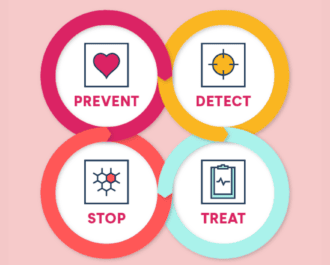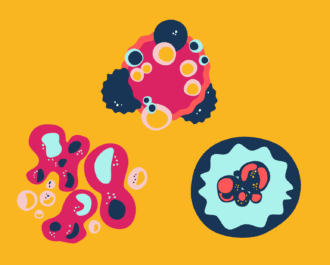
A range of gene mutations (or faults) have been identified that increase the risk of breast cancer or affect a person’s response to treatment. Currently only people who have a significant family history of breast cancer or who have a specific subtype of breast cancer are offered genetic testing. Ongoing research led by Professor Bruce Mann is looking into routine genetic testing for women with breast cancer.
In a collaboration across The Royal Melbourne Hospital, The Peter Mac Callum Cancer Centre and Walter and Eliza Hall Institute, Professor Mann and his team conducted the MAGIC (Mutational Assessment of newly diagnosed breast cancer using Germline and tumour genomICs) study, funded by NBCF. The study assessed the feasibility, usefulness and acceptance of routine genetic testing.
The study involved newly diagnosed women with invasive breast cancer. Women were offered testing of a panel of genes known to contribute to the risk of developing breast cancer.
The early result of this important study was published in the Medical Journal of Australia. Routine genetic testing identified a genetic mutation in 8% of women tested. As a result, many patients had a change in their treatment based on the genetic mutation.
Professor Mann believes that routinely screening all people with breast cancer for mutations at the time of diagnosis should allow a substantial number of previously unsuspected mutations to be identified.
The study found clinically significant mutations in people who would otherwise not have qualified for genetic testing.
Professor Mann commented on how his research is helping NBCF to achieve its vison of Zero Deaths by saying, “To achieve zero deaths, we must be able to identify and provide advice to those women with mutations that increase breast cancer risk.” He added, “This will allow appropriate risk management and prevention.”
So far, the study found genetic testing to be feasible, clinically useful, and not distressing to women and acceptable to clinicians in Australia. This promising study provides important evidence to translate routine genetic testing for all people with newly diagnosed breast cancer into clinical practice.
More News Articles
View all News


